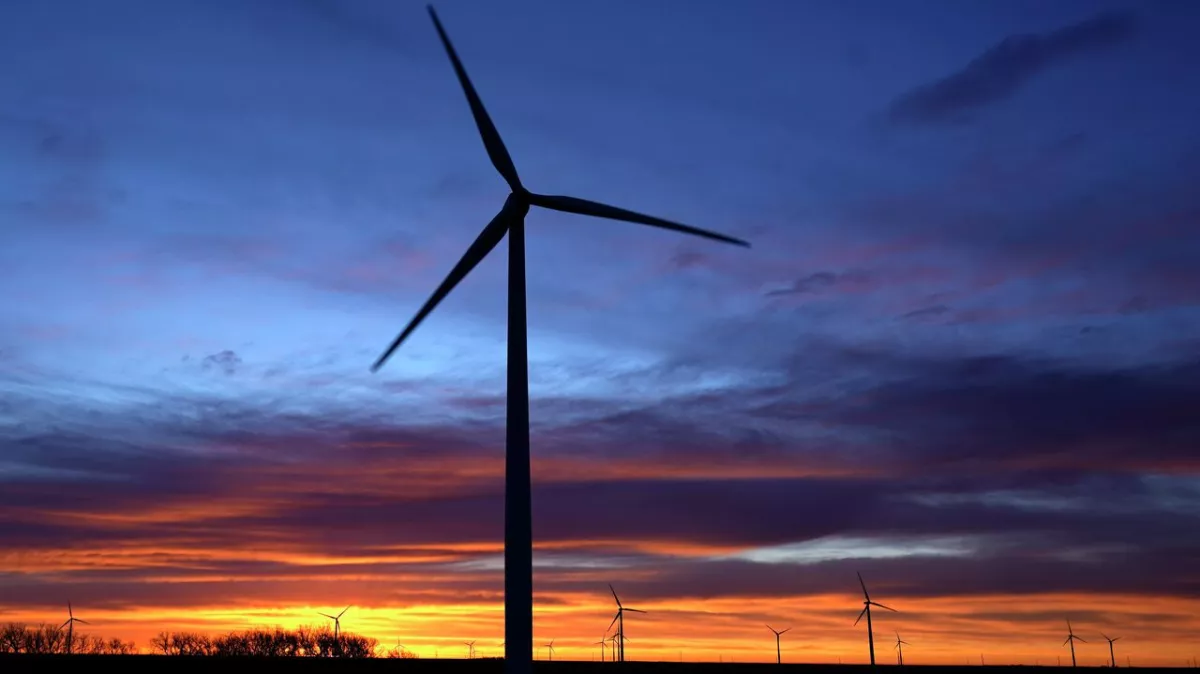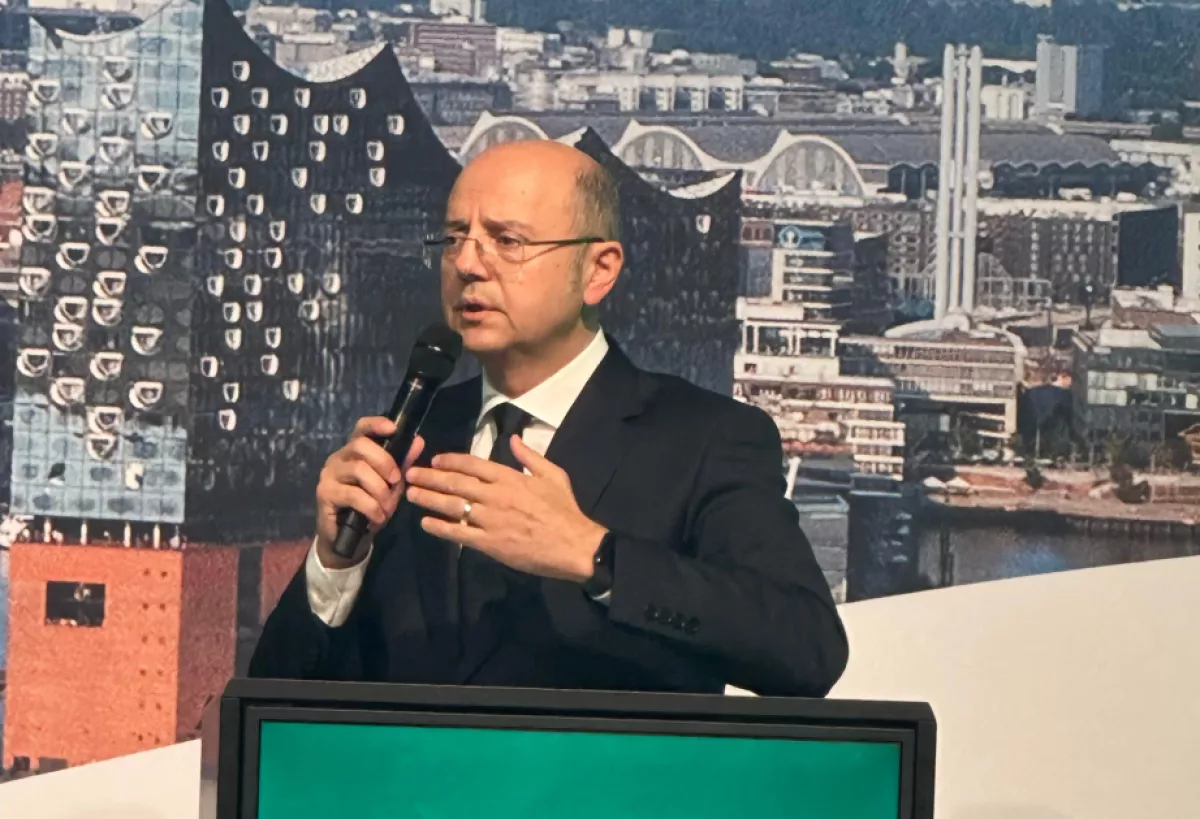Catching the wind: Azerbaijan strengthens global role in clean energy revolution Harnessing innovations of tomorrow
While maintaining its reliance on the oil and gas sector, Azerbaijan is intensifying its efforts to participate in the global energy transition leading up to 2030. The country has ramped up initiatives to boost renewable energy generation, with a particular focus on wind power. Projects for offshore wind farms are already in progress, and preparations for further development in offshore wind energy are underway. Azerbaijan is actively collaborating with companies from Persian Gulf nations and attracting specialized entities from the European Union to strengthen this sector. On September 24, Azerbaijan's wind energy potential was showcased at the Wind Energy Hamburg conference in Germany, attended by Azerbaijani Energy Minister Parviz Shahbazov.
In the 21st century, the expansion of renewable energy is recognized as a key driver of global development, and Azerbaijan has increasingly prioritized this objective. According to the Ministry of Energy, as of June 2024, the country's installed capacity in the renewable energy sector (RES) reached 1,748.6 MW, representing nearly 20.1% of Azerbaijan's total power generation capacity. This marks significant growth compared to the previous years: the RES share in total electricity generation was 12% in 2023, up from under 10% in 2022. By the end of 2027, Azerbaijan aims to increase RES share to 33%, driven by new projects funded mainly through private investments. These ventures are projected to generate 5.3 billion kWh of electricity, cut atmospheric emissions by 2.5 million tonnes, and save 1.2 billion cubic meters of natural gas annually.
One of the most promising sectors in global energy today is wind power generation, alongside advancements in hydro and solar energy. According to the Global Wind Energy Council (GWEC) in its Global Wind Report for 2023, the wind energy sector set a new record: total capacity of newly installed wind power plants reached an impressive 117 GW, marking a 50% increase year-on-year. With the global cumulative wind power capacity surpassing the 1-terawatt (TW) mark last year, wind energy has entered an era of accelerated growth, driven by the pivotal decision made at COP28 to triple renewable energy capacity by 2030. GWEC also highlights that China and the United States remain the world’s largest onshore wind markets, followed by Brazil, Germany, and India. These five nations accounted for 82% of new installations in 2023. By 2030, the wind energy industry is projected to triple its new capacity additions, aiming to reach at least 320 GW.
Azerbaijan began its research into wind energy as early as 2011. That year, Caspian Technology acquired two wind power plants with capacities of 850 kilowatts each from Germany and Denmark. These were installed at the "Shurabad" polygon in the village of Yashma, located in the Khizi District. Additionally, a 550-kilowatt wind turbine was erected on-site for the training of specialists. This marked the foundation of the Yeni Yashma wind park, where new wind turbines were installed in May 2015. These efforts significantly advanced research into the wind potential of Azerbaijan’s coastal areas, particularly along the Caspian Sea and the Absheron Peninsula, as well as in the Garadagh region. Studies revealed that wind speeds in these regions range from 4 to 27 meters per second year-round, making them suitable for profitable green energy projects.

The promising future of wind energy in Azerbaijan is highlighted by recent data from the International Renewable Energy Agency (IRENA), which reveals that the country has increased its wind power capacity from 3 MW in 2014 to 67 MW by 2023. The Ministry of Energy is focused on expanding this capacity further by collaborating with international companies on new wind power projects. Azerbaijan's onshore wind energy potential alone stands at 3 GW, with ongoing studies for wind power plant construction in the Karabakh region attracting interest from Turkish and European companies eager to participate.
Azerbaijan is steadily advancing in this sector, with a number of commercial wind energy projects already underway. The largest of these is being carried out by Saudi Arabia's ACWA Power, which began construction on the Khizi-Absheron wind power plant in January 2022. The plant, with a capacity of 240 MW, is set to have 40 wind turbines installed — 17 in the village of Pirekyushkul in the Absheron district, and 23 in the village of Sitalchay in the Khizi district. Construction, which started in April 2023, is expected to be completed by mid-2025.
The Khizi-Absheron plant will generate around 1 billion kWh of electricity annually, save up to 220 million cubic meters of gas, and reduce CO2 emissions by more than 400,000 tonnes per year. Set to operate for 25 years on a Build-Own-Operate basis, ACWA Power will maintain the wind farm throughout its operational period.
Azerbaijan has made its first move toward commercializing wind power, with ACWA Power currently negotiating with the government to build an offshore wind farm with a capacity exceeding 100 MW. Meanwhile, the UAE's Masdar Company is developing another project to install wind turbines with a total capacity of 240 MW in the Garadagh region and on the Absheron Peninsula.
During Baku Energy Week, which began on June 4, a ceremony was held to lay the foundations of Masdar's solar and wind power plants, attended by Azerbaijani President Ilham Aliyev and UAE Minister of Industry and Advanced Technologies, Sultan bin Ahmed Al Jaber.
A breakthrough in Azerbaijan's wind energy sector lies in the development of the Caspian Sea's offshore wind potential, which stands at 157 GW, the second largest globally after the North Sea. This vast resource presents a significant opportunity for ensuring energy security in Europe, which is grappling with rising energy costs.
U.S. President Joseph Biden highlighted Azerbaijan’s crucial role in global energy security, particularly for Europe, in an address during Baku Energy Week in June 2024. He noted that the Caspian Sea’s wind energy potential could eventually surpass Azerbaijan's oil and gas exports in contributing to clean energy supplies.
Azerbaijan’s offshore wind projects, though still in the early stages, are expected to cover only a small portion of the country’s vast offshore capacity, estimated at 7.2 GW. These projects are highly capital-intensive, as the installation of turbines over 90 meters high in the Caspian Sea requires complex engineering work. However, the immense offshore wind potential continues to attract significant investor interest. Experts from the Ministry of Energy and the International Finance Corporation (IFC) have collaborated to develop a roadmap for offshore wind energy, including future plans for utilizing relatively inexpensive offshore wind power to produce "green" hydrogen through seawater electrolysis, with potential exports to the European Union.
Europe remains a key market for Azerbaijani coastal and offshore wind energy. In recent years, Azerbaijan has ramped up cooperation in this sector. The Ministry of Energy has partnered with the German Wind Energy Association, while the Azerbaijan Renewable Energy Agency (AREA) collaborates with the European Wind Energy Association, Wind Europe, to facilitate technology and equipment transfer. Recently, two LiDAR units, produced by Finnish company Vaisala, were delivered and installed for precise laser measurements of wind speed and direction along Azerbaijan’s coastline, enhancing the country’s wind energy capabilities.

In this context, the participation of the Azerbaijani Ministry of Energy delegation, led by Minister Parviz Shahbazov, at the Wind Energy Hamburg conference, which began on September 24 in Germany, takes on added significance. According to the Ministry of Energy, European state delegations, the Wind Europe Association, and executives from leading organisations such as Nordex Group, LandWind Group, and Enterprise Singapore, all key players in the wind energy sector attend this international event.
During the panel on "Energy Transition," Minister Shahbazov delivered a report titled "Azerbaijan's Green Energy Export Strategy," highlighting investment opportunities and global cooperation in green energy. He provided insights into Azerbaijan's progress in implementing its "green energy corridors," including the "Caspian-Black Sea-Europe" project, which will supply 4 GW of renewable energy to Europe in its initial phase, and the "Azerbaijan-Türkiye-Europe" corridor, which will export 1 GW of renewable energy from Nakhchivan, with potential to transmit electricity from the Caspian Sea and Central Asia to Türkiye and Europe. Shahbazov noted that by 2030, over 70% of Azerbaijan's green energy capacity could be exported, underscoring the nation's role in the global renewable energy market.








